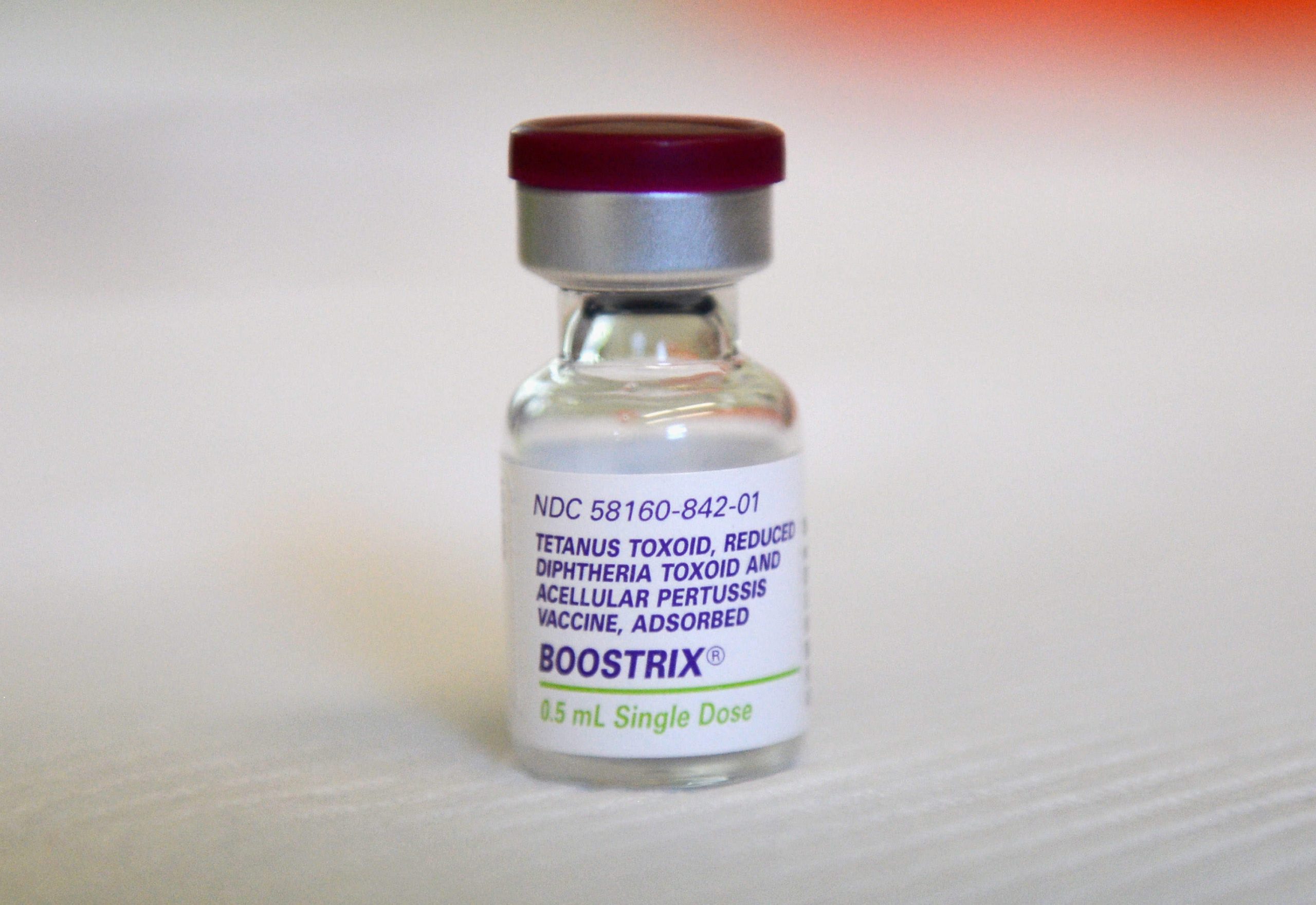
Of all the humorous clichés about general practice, perhaps my favourite is that of the weary doctor explaining to patient after patient, “There’s a lot of it about.” Sitting as we do at the “front door” of the health service, we are uniquely placed to discern the patterns of illness affecting our communities. We witness the ebb and flow of various infections as they sweep through the population. One month might find us bombarded by queries about a nasty vomiting virus; the next brings a surge in suspected cases of scarlet fever.
Recently a new presentation has been cropping up on my patch: adults, typically in their thirties and forties, afflicted by an incessant dry cough that makes speaking difficult and a night’s sleep impossible. There are various viruses capable of producing this picture, most of which resolve within a fortnight. This illness, though, is different. First, it drags on – patients return repeatedly, frustrated by the lack of any improvement. And, as each case progresses, telltale symptoms begin to emerge: retching and vomiting, provoked by the intractable bouts of coughing; and alarming “spasms” where the windpipe closes over, rendering the sufferer temporarily unable to breathe.
A proportion of patients admit to making the hallmark “whoop” once they are finally able to draw breath again. Pertussis is back in town.
Whooping cough – caused by the bacterium Bordetella pertussis – used to be a scourge. In the 1940s, the UK averaged 120,000 cases a year, leading to a significant number of deaths among very young babies, who, because of their narrow airways, are the most vulnerable age group. Vaccination was introduced in the 1950s and slowly but surely appeared to be eradicating the disease. By the time I qualified in 1990, notifications had fallen to just a couple of hundred cases annually across the entire country, and it was extremely rare for a baby to be admitted to hospital with the condition. I learned about pertussis during my training but, like most doctors of my generation, I never seriously expected to encounter it in practice.
However, one Midlands GP, Dr Doug Jenkinson, was struck by a pattern he began to see in his community: adults, who had been fully vaccinated against pertussis as children, struggling with a terrible cough that would drag on for months. As well as telling them there was “a lot of it about”, he acted on a hunch and began testing them. He published his surprising results in the British Medical Journal in 1995, showing unequivocally that the protection from childhood vaccination wanes over a few decades, leaving individuals once more susceptible to whooping cough.
For 15 years or so, Jenkinson’s paper remained relatively obscure. Those doctors who noticed it were better able to diagnose and advise adults with what has become known as the “100-day cough”, but cases of whooping cough in babies – and therefore fatalities – remained rare. Antibodies from mothers cross the placenta, so infants are born with protection. This lasts roughly three months, long enough for the vaccination programme (the first dose is given at two months of age) to take over.
In 2012, though, the UK started to see newborns affected again, with 14 fatalities in babies under three months old, and a further eight dying the following year. This is probably a consequence of the trend towards later childbirth. The average age for women having their first baby reached 30 in 2014 and, as Jenkinson showed, older mothers no longer have sufficient immunity to cover their babies’ first months of life.
The Department of Health has responded by introducing an emergency pertussis booster for all pregnant women in the hope of stemming the rise in infant mortality. But the 100-day cough is also a big cause of illness in adults and there is no treatment. There is surely a case for booster vaccinations for the whole adult population, with the aim of consigning whooping cough to the medical textbooks once again.





